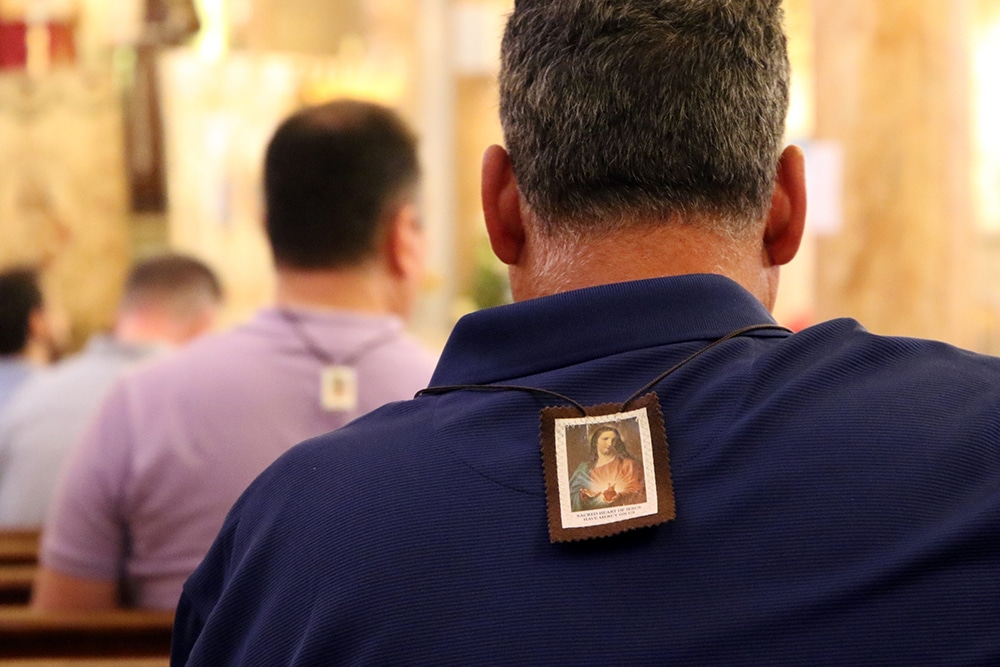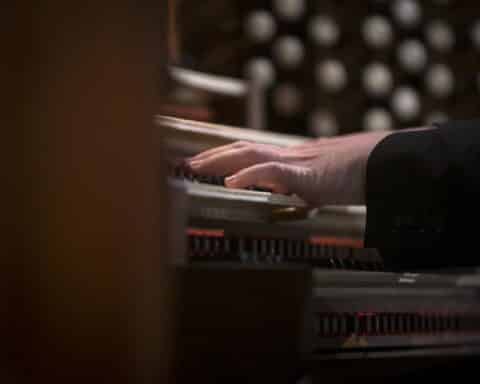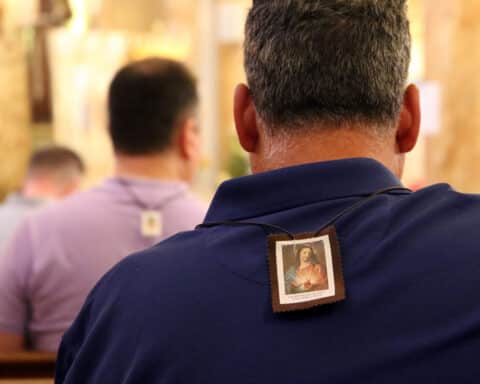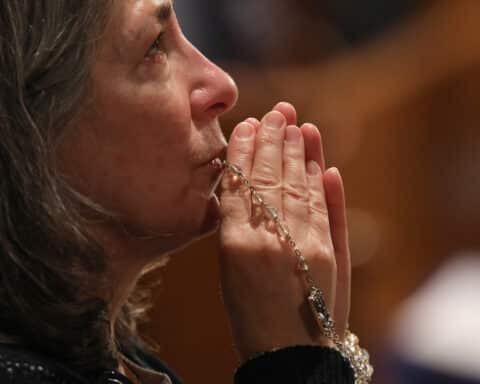
— Christopher Welch, Fairhope, Alabama
Answer: The word scapular comes from the Latin word scapula, meaning “shoulder.” Hence a scapular is anything worn about the shoulders. Many religious wear larger, tunic-like scapulars as part of their habit. Hence the term scapular does not always mean the brown scapular. While scapular can be used as a kind of shorthand to refer to the brown scapular, this is similar to when we say we xeroxed something. But, there are other brands of copy machines than merely Xerox. And thus scapular can also refer to any number of devotions and types of scapulars.
The idea of wearing a scapular is often connected to religious life where laypeople affiliated with certain orders or devotions wear a smaller version of the habit. For those in religious orders, scapulars are usually body length. The smaller versions worn by laypeople, as you know, are usually worn under the clothing. As such, the proliferation of a variety of scapulars is not a copycat thing any more than the fact that religious communities wear similar habits but with different colors and variations in the details.
Since you are invested in the brown scapular, you are associated with the Carmelite order and should not substitute a differ type or color of scapular. You also ought to fulfill the requirements of wearing the brown scapular.
Divorce
Question: With the large number of divorced Catholics, why are some in the Church still so strict about how they treat divorced and remarried Catholics?
— Name withheld
Answer: There are various reasons some remain concerned (or “strict” as you say) about relaxing Church norms and normalizing divorce and remarriage. First, getting people to marry and stay married is an important pillar of every culture. The family is the most fundamental unit of society. Church law, like any law, has among its duties a teaching role. Relaxing norms about marriage may well send the wrong signal that this is not really all that important.
Second, and essentially, Jesus taught consistently and unambiguously on this matter, stating that if one divorced and then remarried another, they were in a state of ongoing adultery (cf. Mk 10:11-12). We simply cannot veto what he teaches.
Third, at least three saints died as martyrs to uphold this teaching: St. John the Baptist, St. Thomas More and St. John Fisher. Given this, many rightly are grieved that so many today are willing to set aside or compromise this teaching for which others died.
The Church must have a pastoral stance for the divorced and remarried through a willingness to investigate their situations and grant annulments where possible. Further, we can recognize that not all are divorced and remarried in the same way; not all acted in bad faith or with malice. But we cannot compromise the truth of the Gospel for this. Sometimes the answer must be that we cannot at this time extend the sacraments to them — with the exception of the Sacrament of Reconciliation — but the Church still encourages them to attend Mass and beseech God’s graces until such time as they are willing to live as brother and sister, or age or other factors practically bring this about.
Mass guidelines
Question: I have noticed that the priest at our cathedral says something quietly at the end of the Gospel after we respond “Praise to you Lord Jesus Christ.” I can’t hear it exactly, but I don’t see other priests do this.
— Norma Jensen via email
Actually, he is doing the right thing. Many priests and deacons forget to do this. The instructions for Mass say: “At the end of the Gospel the deacon or priest acclaims: ‘The Gospel of the Lord.’ All reply: ‘Praise to you, Lord Jesus Christ.’ Then he kisses the book, saying quietly: ‘Through the words of the Gospel may our sins be wiped away.'”
There are a number of times in the liturgy were the priest is directed to say quietly certain prayers directed to his own devotion, and this is one of those times. Other times include the offertory and the cleansing of the vessels.
Msgr. Charles Pope is the pastor of Holy Comforter-St. Cyprian in Washington, D.C., and writes for the Archdiocese of Washington, D.C. at blog.adw.org. Send questions to msgrpope@osv.com.





